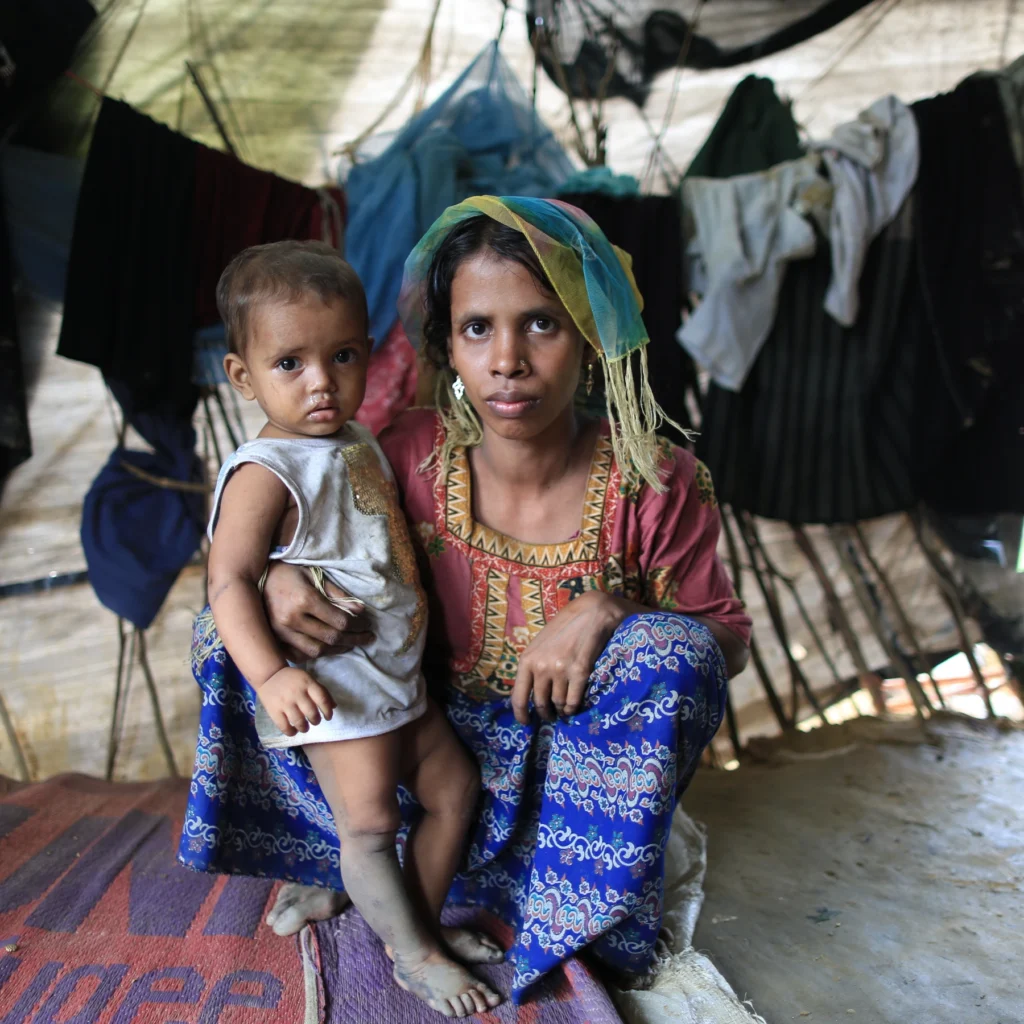Rights campaigners call the ruling military’s pilot project to repatriate the persecuted ethnic Muslim minority a ‘PR campaign’.
The Myanmar military’s “pilot project” to repatriate about 1,000 Rohingya refugees from Bangladesh has been met with scepticism, with rights campaigners calling it a “PR campaign”.
Last week, a delegation from Myanmar visited the world’s largest refugee camp in Bangladesh’s Cox’s Bazar district – home to more than 1 million Rohingya – to interview potential candidates for their return as early as next month.
Nearly 800,000 Rohingya fled their homeland in Myanmar in 2017 after a brutal military crackdown during which thousands of the ethnic Muslim minority were killed, raped and their properties torched as part of a scorched-earth campaign.
Tens of thousands of the persecuted Rohingya took shelter in Bangladesh before the 2017 crackdown that the United Nations said was carried out with “genocidal intent”. In a 2018 report, the UN called for army chief Min Aung Hlaing, and other generals, to face genocide charges.
The Rohingya left in Myanmar suffer segregation and widespread discrimination as well as having their citizenship revoked. Rights groups say the measures amount to apartheid.
“We see this move as a PR campaign. If the junta genuinely wants to repatriate the refugees, they already have a list of more than 800,000 refugees from past years and could have revealed their plan earlier,” Nay San Lwin, co-founder of the Free Rohingya Coalition, told Al Jazeera.
“This decision to repatriate just 1,000 refugees seems to be an attempt to ease pressure from China and other countries,” he said.
‘My heart aches for my homeland’
Myanmar’s generals seized power in a coup in February 2021, plunging the Southeast Asian nation into renewed political turmoil only 10 years after the end of 49 years of strict military rule.
The Myanmar delegation’s visit to the camps is believed to be brokered by China and facilitated by the UN refugee agency (UNHCR).
Nur Alom, 42, who fled to Bangladesh in September 2017 with his wife and three children from the Maungdaw district of Myanmar’s Rakhine state, told Al Jazeera he is not interested in going back to Myanmar without ensuring citizenship.
“The Myanmar team didn’t say a word about whether we will be granted citizenship. They don’t even call us Rohingya. What guarantee is there that we will be safe if we go back?”, said Alom, who was one of the Rohingya refugees interviewed by the Myanmar delegation.
Alom said life inside the crowded refugee camp in Bangladesh was undignified but at least safe.
Noor Kolima, 31, another interviewee, had the same opinion. “My heart aches for my homeland in Myanmar. Of course, I want to go back. But the memories of what we faced there few years ago haunt me,” she told Al Jazeera.
“They [Myanmar team] were asking a lot of questions but didn’t give any answer to our ones. We have questions too. We want to make sure that we are returning to a safe place,” she added.
Deutsche Welle reported that about 3,000 Rohingya had been shortlisted for the verification process. Al Jazeera could not independently verify the figure.
Nay San, the activist, said the verification process was opaque and no one was willing to listen to the demands of the Rohingya refugees.
“The junta has no plan to restore the citizenship and rights of the Rohingya. The junta has not stated that returnees will be allowed to return to their original places or given freedom of movement,” he said.
“There are many other reasons why refugees cannot trust the junta, especially since the genocide is still ongoing. Rohingya refugees who returned without official permission were arrested and sentenced, and those who flee to Malaysia are also being arrested and sentenced to up to five years.”
The biggest concern, he said “is that there is no guarantee that the cycle of violence against the Rohingya will not repeat itself”.
Repatriation is ‘only possible solution’
Bangladesh’s Refugee, Relief and Repatriation Commissioner (RRRC) Mizanur Rahman told Al Jazeera the Myanmar delegation did not have the power to commit on a possible repatriation date.
“They were here just to verify information of the Rohingya refugees who were selected for a pilot repatriation project,” Rahman said, “We were told that the Myanmar foreign ministry will get back to us on this.”
Repatriation, he told Al Jazeera, is the “only possible solution” for the Rohingya refugees. “They are their citizens, they have to take them back.”
Dhaka has imposed significant restrictions on their movement and continued to push for their return.
A prominent Rohingya diaspora group has also criticised the planned repatriation – the third since 2017 – saying the Myanmar military rulers had planned “token” repatriations to align with the genocide case resuming at the International Court of Justice (ICJ) on April 24.
“Taking back a few refugees, even if it is less than one percent of the population, shall allow Myanmar to come up with a counterargument under the very false pretence they are sincere about the return of refugees,” the Arakan Rohingya National Alliance (ARNA) said in a statement.
In a signed statement, about 200 civil society organisations condemned the UN’s participation in the process.
The UNHCR has defended its decision to facilitate the Myanmar delegation, saying it “supports efforts that could lead to the verification of all refugees and pave the way for eventual return”.
The agency, however, reiterated that conditions in Myanmar are currently unsafe for Rohingya.
Nay San said all the rights of Rohingya, including citizenship rights, needed to be restored before their return to their original places in Myanmar.
“Rohingya should be granted equal rights as other ethnic groups in Myanmar,” Nay San said.
“If these rights are guaranteed, all the refugees will be willing to return.”
Source: Al Jazeera


